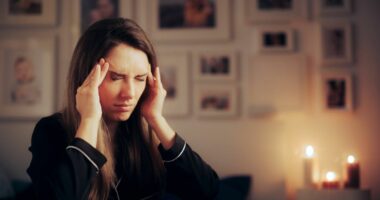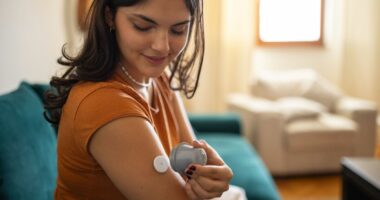Share this @internewscast.com
Imagine you walk into a crowded restaurant with your family. As soon as you sit down, you have difficulty hearing what they’re saying to you, thanks to all the background noise around you. And even though the food is great, you end up majorly disappointed over missing out on the conversation during family time.
If this sounds eerily relatable (or like something you definitely don’t want to experience), then it might be time for you to prioritize your hearing care. In the United States alone, about 40 million adults aged 20 to 69 have noise-induced hearing loss. To put that figure into perspective, it’s almost double the amount of people who report having diabetes or cancer.
And while it may be easy to shake it off and say your hearing is fine, one in four U.S. adults who report having excellent to good hearing actually already have some form of hearing damage. Why has hearing loss become such a common problem? Leslie Soiles, Au.D., HearingLife’s chief audiologist, has some insight.
“We are constantly surrounded by loud noises,” she says. “Whether that’s traffic or concerts, many young people are exposing themselves to louder environments. We’re also bringing it into our homes. Earbuds direct sound straight to your ears, closer than ever before, and it has an impact. These practices have led researchers to believe that by 2030, over 1 billion people under the age of 35 will have hearing loss.”
The first step toward taking your hearing care seriously is scheduling a baseline hearing test (you can book a complimentary assessment at your local HearingLife center), Dr. Soiles says. From there, you can discuss with your licensed hearing care expert when you should start planning annual hearing tests (but Dr. Soiles recommends no later than age 55).
And if you really want to take your hearing care to the next level (you can’t get it back once you lose it, after all!), keep reading for four tips from Dr. Soiles on how to make it a part of your daily wellness routine.
1. Limit exposure to loud environments
Take a second to think about your weekend plans: Maybe you’ve got lunch with family, a social gathering to attend, or you’re seeing a new movie in theaters. One thing all of these things have in common? They’re usually pretty loud.
Dr. Soiles’ number-one tip for prioritizing hearing care is to limit exposure to loud environments as much as possible. But how do you do that without becoming a hermit? Every once in a while, try turning lunch into an al fresco picnic (bonus: you’ll save some money too), opt for a smaller gathering where the environment won’t be as loud, or host a movie night at home with all your favorite snacks within arm’s reach. This way you’re not missing out on plans, just tweaking them to better protect your ears.
2. Wear hearing protection when in loud environments
If there are some weekend plans you aren’t willing to give up (think: a football game or a concert), grab a pair of earmuffs or earplugs to help reduce the noise input while still maintaining the quality of the sound.
Read Related Also: 4 Festive Fall Treats You Can Make With Just Bananas, Peanut Butter, and Chocolate
Even though they might not be the most stylish option, they’re worth it to protect your ears since hearing damage can happen instantly. “Our hearing has never been a more significant part of life than it is today,” Dr. Soiles says. “It connects us in every way possible. Without it, we lose touch with life and those around us.”
3. Follow the 60/60 rule when using headphones
Headphones and earbuds are a big part of our daily lives. You use them while exercising, commuting, taking Zoom calls, etc. Every time you pump up the volume or wear them for a long time, though, you’re risking damage to your ears—which can be avoided by following the 60/60 rule.
“To limit possible damage, HearingLife recommends the 60/60 rule: Headphones should be used for no more than 60 minutes a day, at 60 percent of their maximum volume,” Dr. Soiles says. Next time you’re hitting the gym, just remember to turn down the volume a tad. Your ears will thank you.
4. Get your hearing checked by a professional
Many times, it’s easy to put off heading to the doctor until there’s a perceptible issue—but when it comes to your hearing care, it’s important to be proactive about getting your ears checked, since knowing your baseline hearing ability can help alert you if problems do arise.
“Having a baseline knowledge of your hearing is important,” Dr. Soiles says. “If your doctor notices you are steadily declining, there may be steps you can take to prevent further damage. Similarly, if there is a sudden and sharp decline, there may be underlying causes your doctor will want to know about.” Luckily, you can schedule a complimentary assessment to determine your baseline at any HearingLife office near you.
“We use our hearing to feel, connect, navigate, communicate and make sense of the world,” Dr. Soiles says. “Hearing care and treatment with a professional can be life-changing for those with hearing loss.” Take Dr. Soiles’ advice and start prioritizing hearing care ASAP—it will be well worth it in the long run.















